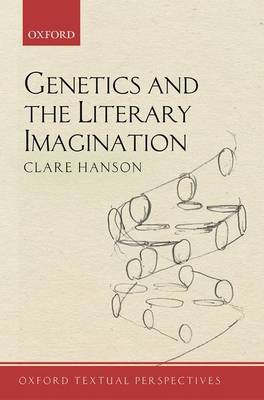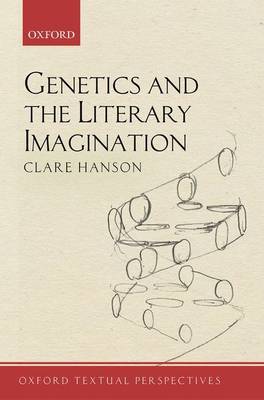
En raison d'une grêve chez bpost, votre commande pourrait être retardée. Vous avez besoin d’un livre rapidement ? Nos magasins vous accueillent à bras ouverts !
- Retrait gratuit dans votre magasin Club
- 7.000.000 titres dans notre catalogue
- Payer en toute sécurité
- Toujours un magasin près de chez vous
En raison de la grêve chez bpost, votre commande pourrait être retardée. Vous avez besoin d’un livre rapidement ? Nos magasins vous accueillent à bras ouverts !
- Retrait gratuit dans votre magasin Club
- 7.000.0000 titres dans notre catalogue
- Payer en toute sécurité
- Toujours un magasin près de chez vous
Description
Oxford Textual Perspectives is a series of informative and provocative studies focused upon literary texts (conceived of in the broadest sense of that term) and the technologies, cultures, and communities that produce, inform, and receive them. It provides fresh interpretations of fundamental works and of the vital and challenging issues emerging in English literary studies. By engaging with the materiality of the literary text, its production, and reception history, and frequently testing and exploring the boundaries of the notion of text itself, the volumes in the series question familiar frameworks and provide innovative interpretations of both canonical and less well-known works. This is the first book to explore the dramatic impact of genetics on literary fiction over the past four decades. After James Watson and Francis Crick's discovery of the structure of DNA in 1953 and the subsequent cracking of the genetic code, a gene-centric discourse developed which had a major impact not only on biological science but on wider culture. As figures like E. O. Wilson and Richard Dawkins popularised the neo-Darwinian view that behaviour was driven by genetic self-interest, novelists were both compelled and unnerved by such a vision of the origins and ends of life. This book maps the ways in which Doris Lessing, A.S. Byatt, Ian McEwan, and Kazuo Ishiguro wrestled with the reductionist neo-Darwinian account of human nature and with the challenge it posed to humanist beliefs about identity, agency, and morality. It argues that these novelists were alienated to varying degrees by neo-Darwinian arguments but that the recent shift to postgenomic science has enabled a greater rapprochement between biological and (post)humanist concepts of human nature. The postgenomic view of organisms as agentic and interactive is echoed in the life-writing of Margaret Drabble and Jackie Kay, which also explores the ethical implications of this holistic biological perspective. As advances in postgenomics, especially epigenetics, provoke increasing public interest and concern, this book offers a timely analysis of debates that have fundamentally altered our understanding of what it means to be human.
Spécifications
Parties prenantes
- Auteur(s) :
- Editeur:
Contenu
- Nombre de pages :
- 212
- Langue:
- Anglais
- Collection :
Caractéristiques
- EAN:
- 9780198813286
- Date de parution :
- 07-07-20
- Format:
- Livre relié
- Format numérique:
- Genaaid
- Dimensions :
- 135 mm x 198 mm
- Poids :
- 362 g

Les avis
Nous publions uniquement les avis qui respectent les conditions requises. Consultez nos conditions pour les avis.






